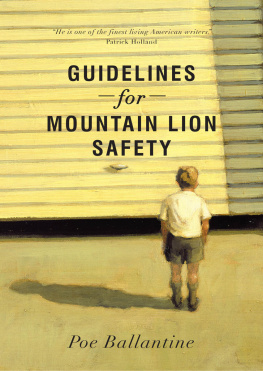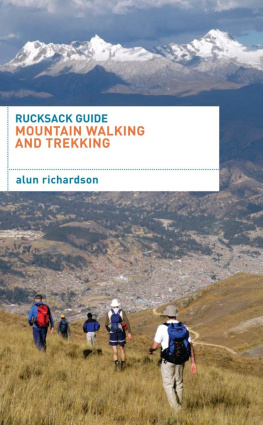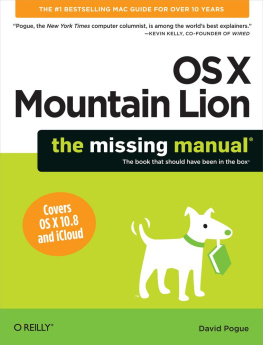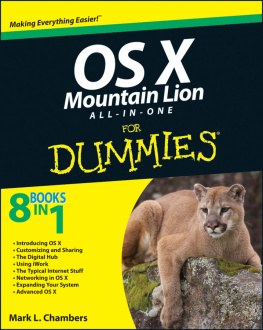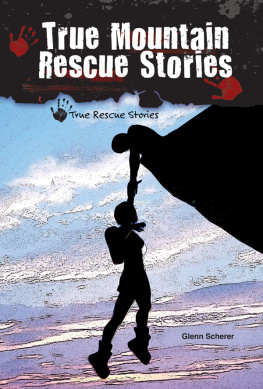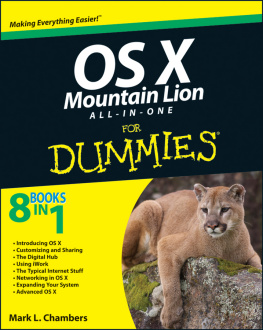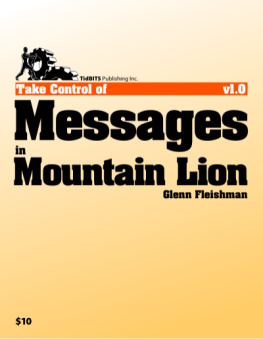GUIDELINES
for
MOUNTAIN LION SAFETY
GUIDELINES for
MOUNTAIN LION SAFETY
Poe Ballantine


MELBOURNE, AUSTRALIA
www.transitlounge.com.au
Copyright Poe Ballantine 2015
First Published 2015
Transit Lounge Publishing
This book is copyright. Apart from any fair dealing for the purpose of private study, research, criticism or review, as permitted under the Copyright Act, no part may be reproduced by any process without written permission. Inquiries should be made to the publisher.
Cover painting: Ben McLaughlin/Bridgeman Art Library
Internal cover and author images: Tess Anderson Photography
Cover and book design: Peter Lo
Printed in Australia by McPhersons Printing Group
A cataloguing-in-publication entry is available from the
National Library of Australia: http://catalogue.nla.gov.au
ISBN: 978-1-921924-94-1

For Dave Jannetta
CONTENTS
SALIDA
In the beginning of my senior year in high school in 1972 I was sixteen years old, six feet one, 155 pounds. I had just gotten my braces off, though no one had noticed yet. In the mornings at the breakfast table before school I studied the box scores of the sports section in the San Diego Union. Then I checked the score of the Vietnam War (pointless now, as most historians have it), presented daily as a body count, ours versus theirs. In two years I would be eligible to go die for democracy in Vietnam, and though everyone was saying the war would be over soon, theyd been saying this since I could remember. I knew I didnt have the luck to beat the draft or the nerve to run away to Canada. My future seemed to end abruptly in the infested jungles of Indochina, where I would step on a landmine or get strung up in some kind of razor-blade booby trap and spend the rest of my days suspended from a tree with giant rats in a bamboo cage.
I rode to school every day uphill three and a half miles through a cold fog on my fathers old brown Royal three-speed bicycle, my long hair flying out behind me, my pimples tingling in the wind, and by the time I arrived I would have asthma and vow to quit smoking. But on the way home in the afternoon I would feel better and it would be sunny and downhill and I would look for cigarettes not-too-far-smoked-down in the gutter. If I spied a discarded cigarette of sufficient length I would stop, go back, pick it up, and take it home. My father was teaching junior high and my mother was at court-reporting school so no one would be home until at least five. If I didnt find a cigarette I would roll one out of my fathers Prince Albert can. Sometimes I would take off all my clothes and pour a finger of vodka and sit in the bean bag chair with a cigarette and feel all grown up in these precious last days before I had to go off and be blown to bits in the Vietnam War.
One day I saw an announcement on my home room bulletin board for a hospital assistant class being offered on campus by a state-funded outfit called Regional Occupational Program. The words career and tuition-free caught my eye. I wondered if this might not be the path to a medical degree (my great-grandfather had been a physician), and I liked the idea of work more stimulating and consequential than frying hamburgers or mowing lawns. I remembered my aunt, a registered nurse, waving her hand under her chin as she spoke about a particular orderly being the only healthy male in the hospital, and I saw myself completely surrounded by women. Immediately I enrolled. My friends and neighbors made fun of me because orderlies were queers and I was going to empty bedpans and wipe asses, but my parents were thrilled. They bought me the white uniform and special white hospital shoes.
There were twenty guys in my class, a cross-section of kids I would have never expected to see wiping asses or emptying bedpans, among them surfers, blacks, football players, and stoners. We were all sixteen or seventeen years old and none of us had ever had jobs. Mr. Manfred was our teacher. We just about fell out of our chairs when he told us he was a nurse, even if we were basically going to be nurses too. Mr. Manfred was a tall, athletically built man with a gray flat-top who acted more like a drill sergeant than a nurse. He called us either babe, or by our last names, which he had memorized within the first hour of the first day using what he called mnemonic strategies. There was a tall surfer named Splinter, and a black kid named Hughes, who wore big aviator glasses. There was a kid named Foster with a haircut like an orphan and a stoner named Briggs, who Mr. Manfred said to broad laughter looked like he just got out of jail. You could remember anything if you used these strategies, Mr. Manfred insisted. Then he drew a picture of a parrot on top of a submarine on the board so that we could remember the word polymorphonuclear, a word I have not forgotten to this day.
My high school was experimental, largely because most of us would be sent off to Vietnam soon to have our guts splattered up the side of a tree and so why not make the classes easy? Mr. Manfreds hospital assistant class, however, was not easy. We needed to absorb what amounted to a years worth of college physiology and college anatomy. Mr. Manfred had no patience for slackness, tardiness, inattentiveness, squeamishness, flippancy, gum chewing, or complaining. He had no tolerance for laughing at fecal impactions or bedpans or enemas or male nurses or the words gonad or homozygote. There would be no grades. Whether you got a job or not, that was your grade.
Over the next few months, we typed blood (I discovered I was B negative), learned how to measure ketones and do Clinitests, learned how to work a sphygmomanometer, memorized the skeletal, circulatory, nervous, respiratory, digestive, lymphatic, and reproductive systems, learned how to insert and remove catheters, to replace colostomy bags, how to feed someone through a nasogastric tube, how to dress decubitus ulcers, how to make hospital beds with patients still in them, how to stop bleeding, how to identify and deal with diabetic coma, diabetic shock, heart attacks and strokes. We learned the jargon of charting and how to walk, shower, bed-bathe, and shave patients (many of us were not shaving ourselves yet). We learned about the causes and conditions that landed people in convalescent hospitals: dementia, diabetes, strokes, cancer, osteoporosis, Parkinsons, blood clots, hip fractures, neural disorders, obesity, cigarettes, and amputations. We learned of course about enemas, bedpans, and urinals.
At least once a week we took a field trip in our white uniforms to an acute or a convalescent facility. We were instructed to behave like men, to fly right and not giggle or embarrass the school, to help wherever we were needed or asked. Often we went to the giant new VA hospital in La Jolla, where there were acres of dying old soldiers and also some younger ones who had been mangled by landmines and razor-blade booby traps in Vietnam. Mr. Manfred made sure to take us to the vast wards teeming with cancer and emphysema patients, where he would make his point about the boneheadedness of smoking, though none of us paid him much mind since we were probably not going to live that long anyway. The VA hospital, where cigarettes were only twenty-five cents a pack, was one of our favorite places to go.
I never took a class where I learned so much, where I had such admiration, gratitude, and respect for my teacher, where I was challenged and asked to work so hard for a job I didnt believe I would get. This was also the first group to which I felt not only loyalty but camaraderie. My fellow hospital assistant trainees, except maybe for some of the stoners, would never have associated with me. But we had been compelled to alliance by the great scholarly task before us and the derision and suspicion that surrounded us for our ignoble choice of vocations digging around in the backsides of elderly people when we couldve much more easily earned the same wages frying hamburgers or mowing lawns.
Next page
